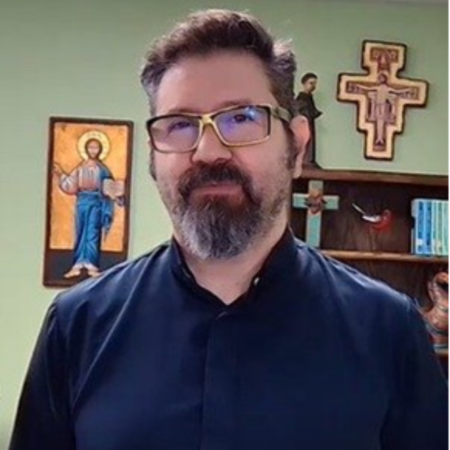Among the guardians of those who wait is Joseph, a man of dreams and calloused hands, the last patriarch of ancient Israel. He tells a story of love, and his doubts about receiving the woman he loved, a human story of expectations and crises.
Before they moved in together, Mary found herself pregnant; then Joseph thought of repudiating her in secret. It was the only way he saw to save Mary from the risk of stoning. All this because he loves her, she occupied his life, heart, and dreams.
He is a Father: from whom did Jesus learn to oppose the ancient law, to put the person before the rules? If not, by hearing Joseph tell the story of that love that gave birth to him, the detailed account designed to save his mother from stoning. How did Jesus learn to choose the household word “abba,” that childlike word of his, so identifiable and exclusive, if not in front of the man with the deep eyes and heart?
By calling Joseph “abba,” dad, he learned what that sweet and powerful name evokes, how it is, in reality, a revelation of God’s face of love.
Joseph who never speaks, of whom the gospel does not even remember a word, is a silent and courageous man, concrete and free, a dreamer and a doer: the fate of the world is entrusted to his dreams because the righteous Joseph has the same dreams as God.

